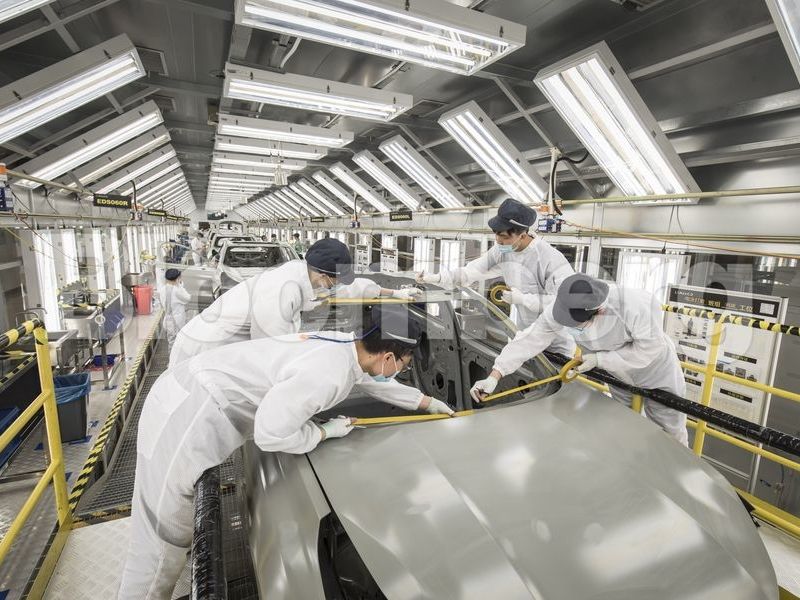
What does Zeekr even mean? The word can’t be found in any dictionary yet Zhejiang Geely likes it so much that it’s applied for several dozen sub-brands under the moniker, commercial registration data show.
One of those brands is for an electric vehicle. That makes sense — while Geely is China’s biggest manufacturer of local-branded conventional automobiles, it’s plowing resources into EVs, like all carmakers. But it’s also applied to use the Zeekr name for air conditioners, clothing, furniture, fast food, beer and even firecrackers. What is the company playing at?
Geely isn’t changing direction, quite the contrary. The Hangzhou company is making a renewed push into EVs under the Zeekr brand, and may absorb its existing Geometry EV brand into the mix as part of that. But just as Tesla aims to create an aura and lifestyle around its brand, so too does Geely wish to snare consumers and convert them. Imagine, a Zeekr car owner could wear a Zeekr hoodie while driving to their local Zeekr club for a Zeekr coffee. They could meet up with fellow Zeekr-ites and probably purchase a toy Zeekr on the way out for the kids.
It’s a different way of approaching car ownership versus the traditional sales method, where the relationship pretty much ends once the ink is dry on the paperwork and the car is driven out of the lot. Yet building a tight and lasting bond with customers that endures throughout a vehicles’ lifespan is a model that’s been a success for rival Nio — and it now has a valuation greater than Ford.
When Nio founder William Li, a sociology major from Peking University, talked about building a user ecosystem five years ago, the concept sounded abstract. However, Nio’s consumer-centric strategy has been paying off. It’s helped build the sort of brand loyalty for the company’s premium cars in China that even Apple would envy. A Nio customer once quipped to me that saving for a Nio was a better decision than saving for an MBA because the networking he gained from hanging out at Nio clubs (yes, they’re a thing) was way more useful.
Creating a whole ecosystem around a car and adding intelligence and connectivity so that vehicle becomes an extension of your living room is an approach traditional automakers and big tech companies are racing to perfect. As Bloomberg editor Craig Trudell wrote last week, no one in this area is standing still. Herbert Diess, the CEO of Volkswagen, is even starting to sound a lot like Elon Musk.
One of China’s most staid automakers, SAIC Motor, a partner of VW and General Motors in China, is getting in on the act, too. Already SAIC has “user experience centers” for its R brand of EVs dotted in downtown areas in Beijing, Shanghai and Guangzhou. Before, SAIC would typically have dealerships set up on cities’ outskirts. Now, the urbane showrooms have become a nice spot for would-be purchasers to hang out after a stint of shopping at Prada or Gucci.
Ultimately, quality, safety and functionality are key to a car’s success. But in China’s increasingly crowded EV market, those three factors alone aren’t enough to elevate one make of car from another. To stand out, EV manufacturers need to be creative and find ways to get customers hooked. For Geely, which only got 5 percent of its total sales from EVs in 2020 and disappointed investors last week with earnings that missed expectations, Zeekr beer may be a good start.